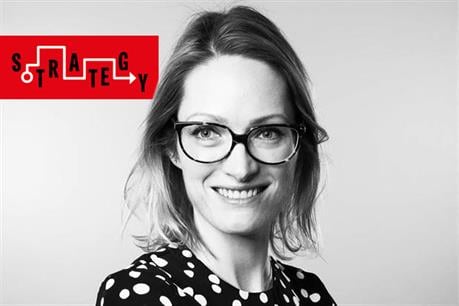
The Cannes Lions Festival is round the corner and, amid the anticipation about what will win, is the usual conversation about whether any of it actually matters.
As a recovering Cannes cynic, I’ve reflected a lot on its role and relevance. This year especially, I think we all do well to think about how our industry is perceived.
Many agencies will have rolled back on the number of people attending, the spend on submissions and will be keeping a check on frivolity, which makes a caricature of the event.
Strategy may have a more explicit role in the festival now with creative strategy and creative effectiveness prizes – but that takes a narrow view of its value outside of the creative department.
Anyone in the business of commercial creativity wins from these awards, whether or not they stand on the stage.
There has been some truly brilliant analysis of the relationship between creatively awarded work and that which wins in effectiveness awards.
Peter Field’s The Crisis in Creative Effectiveness (written for the IPA) is a few years old now, but is still the best review of the drift between what judges prize and what works in ‘the real world’.
The big caveat on the data is that it is drawn from award entries, a fact that brings a huge bias – there’s an understandable reservation from lots of clients to publish data (even indexed) about their commercial success; and entering awards is expensive, and therefore way down the priority list for smaller agencies who nevertheless will be making great work.
It is undeniable that losing the connection between creativity and effectiveness (even if that loss is just a product of subjective judging) is a problem.
As Field lays out, it compromises one of our most compelling arguments for client investment in creatively led, long-term brand-building.
But it is also a big worry if, at this stage, our successful argument for brand investment relies exclusively on this one data point.
Pulling focus away from this two-factor relationship reveals other ways in which the value brought by the work we see at Cannes Lions is irreplaceable:
Tactics are strategy
One of the challenges levelled at (main prize) winners at Cannes is that they are short term, tactical, not in market long enough to have an impact (nor be big enough for a standalone effectiveness paper).
But it’s narrow minded to write them off as being ineffective or irrelevant. A lot of tactical work at Cannes shows up as part of a longer-term strategy in effectiveness papers.
While isolating impact of each piece of activity isn’t always possible, there is often excellent argument for how it contributes to the over-arching narrative and profile of a brand.
Provocation and stimulation
Creativity is an exercise in expansive thinking. Pushing on from what has gone before, challenging what think is possible is unquestionably part of our job.
Of course, avant-garde experimentation is not all we do, not even close. Despite some grumpy commentary to the contrary, it’s not even all there is on show at Cannes.
But extraordinary work plays an important role in challenging conventions. Ideas, craft, connections, arguments which might feel peripheral today make their way into the mainstream with surprising speed.
Deep collaboration
The work we see there is the product of diverse skills getting around a challenge. Each year we hear new names, start-ups, fresh minds collaborating to bring ideas to life.
Each piece of work represents one of the best things about our industry – that when interesting combinations come together there is genuine magic.
A global conversation
As an industry obsessed with predicting our own demise, dedicating some time to showcasing the sheer power of creativity feels like a good plan.
It is a fact that the work we do with our clients and their brands delivers enormous economic value and creates jobs. There does not need to be a direct match between the work we see on stage and that we see at shelf-edge or on our screens for that to be true.
In fact, I’d go so far as to say that if we inverted this, and only saw work awarded that was mass-market, efficient, sales-driving – our industry would stagnate and would almost certainly fail to attract the talent we need for our survival.
Apparently, our industry is second only to hairdressing in our appetite for awards. With that in mind, there’s space for each show to have a leaning to one thing over another: for one set of judges to recognise the work which sells and another the work which shifts our perception about creativity itself.
Creative effectiveness is vital. Our existence depends on evidencing the multiplying factor of creativity on all its forms.
A lot of work awarded at Cannes next month will showcase that but, for the work that doesn’t, it’s worth considering in what other ways it moves us forward before we write it off.
Jo Arden is chief strategy officer at Ogilvy.









